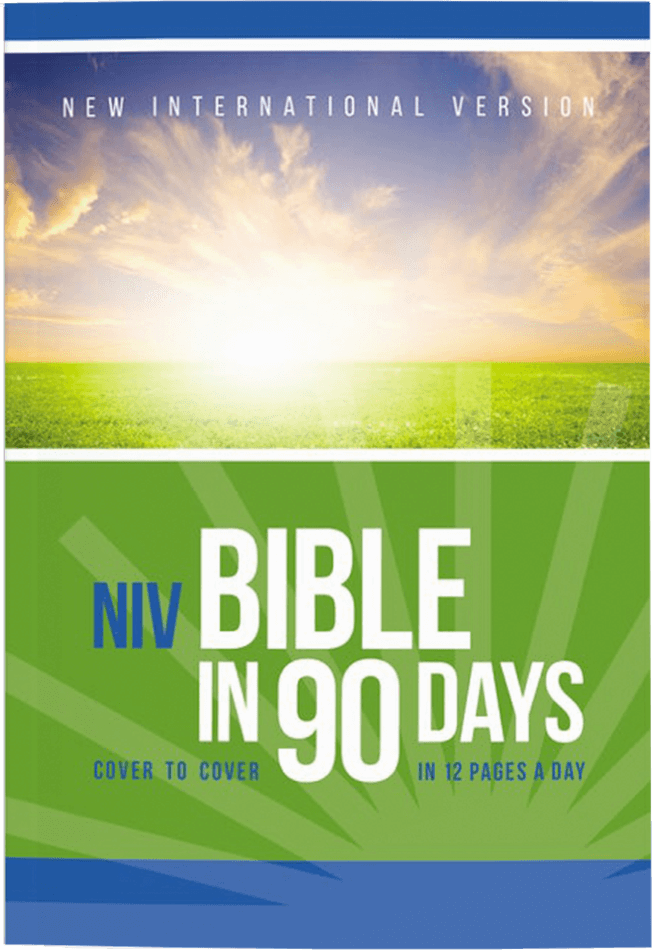Welcome to week 10! You are now about to crest the hill and enter into the New Testament.
Take a moment and look at what you’ve accomplished so far. You’ve packed 63 days of straight Bible reading under your belt. You have read 862 chapters of Scripture. And now you have just a few, short weeks left. That’s worth celebrating.
And now look back on what you’ve learned. You have studied God’s law for the Israelites. You’ve seen the power of the Lord deliver the Israelites from slavery in Egypt, turning them into a real nation. You’ve seen kings rise and fall, God’s people taken into exile, and the Israelites return to the Promised Land.
You’ve read history, poetry, and prophecy. Now you will finish the Old Testament by reading the Minor Prophets and enter the turning point of all history – the moment everything has been leading up to – the coming of the Messiah.
Daniel 9:1 – Matthew 26:56 Themes
| Daniel In the first half of Daniel, you read what most people think of when referring to this particular Old Testament character. But after chapter 7, this book starts looking more like Revelation. When you get to the end of you’re the 90-Day-Challenge, remember what you read in this book.
Pre-Exile Prophets
Post-Exile Prophets
Matthew 1 – 26:56 As Malachi closes out the Old Testament, you’d expect Matthew to pick up where he left off, right? Wrong. There are 400 years of history that takes place between the testaments – and much has happened. The Israelites are conquered again, the temple gets desecrated, a family of priests lead a revolt against the Syrian Seleucid Empire, Greece conquers much of the surrounding land, Rome grows to be more powerful than Greece, and Israel is set up under kings who have to answer to the Emperor. Enter King Herod and the census, and we’ve made it to Matthew chapter 1. As you read the Gospel of Matthew, try reading it from a 1st century Jewish perspective. Matthew was a Jew and he was writing the account of Christ’s life, death, resurrection, and ascension in light of all the books you just read. This is when reading the Bible in such a short amount of time begins to pay off! Now you can finally start putting together the pieces from many of the Old Testament cliffhangers. |
Encouraging Comments from B90 Readers
| When reading at this pace, it’s amazing to see the recurring themes of worship, commands of holiness, and treatment of the poor and needy that run like a fabric throughout Scripture. It truly instructs us how to live! Also, for those who are a little behind (or ahead) in the 90 Day Plan, I can’t help but wonder if the reading you have for today, is precisely what the Lord has for you TODAY! … Hey, only about 3 weeks to go!
Mike Bingham, Florida On to the New Testament. Having traveled through the Old Testament it’s nice to arrive and meet Jesus the Messiah! Have you noticed how much the Old Testament is quoted in just the first 4 chapters? Thus saith the Scriptures! Confirming and validating everything that had been said. The Word is alive! Having read the Old Testament as fast as I did I love how I see the New Testament in a whole new light. How is everyone who is on track doing? Don’t quit. This Bible bus we are on is on a non-stop course to Revelation:} ALL ABOARD! Jim Martenson, Michigan |
B90 Insight of the Week
| “The LORD passed before him and proclaimed, ‘The LORD, the LORD, a God merciful and gracious, slow to anger, and abounding in steadfast love and faithfulness’” – Exodus 34:6 Why quote Exodus when we’re at the end of the Old Testament? Because this verse concisely states who God is and how He revealed Himself throughout history. This verse shows up again and again in the Minor Prophets, and it is what we should all have in mind when reading about God in Scripture. “Rend your hearts and not your garments. Return to the LORD your God, for he is gracious and merciful, slow to anger, and abounding in steadfast love; and he relents over disaster.” – Joel 2:13 How many times do we need to be reminded of who God is? The Israelites needed to be reminded again and again. When we read God’s Word and discover His perfect plan for redemption – we can’t help but respond with thanksgiving and praise. This week, find the many different ways you can worship the Lord through the reading of His Word. Try to find out something about God that you never knew before and give us your thoughts in the comment section below. |
The Bible in 90 Days
Reading the Bible in ninety days is easier than you thought!
Once you break it down into bite-sized pieces, what may have seemed to be a formidable challenge becomes doable and enjoyable. And this specially designed Bible will help you get the most out of your experience. Fulfill what for many Christians is a longstanding ambition: reading through the entire Bible!
